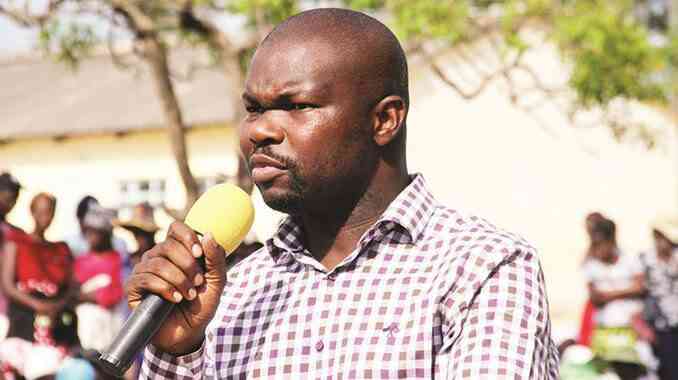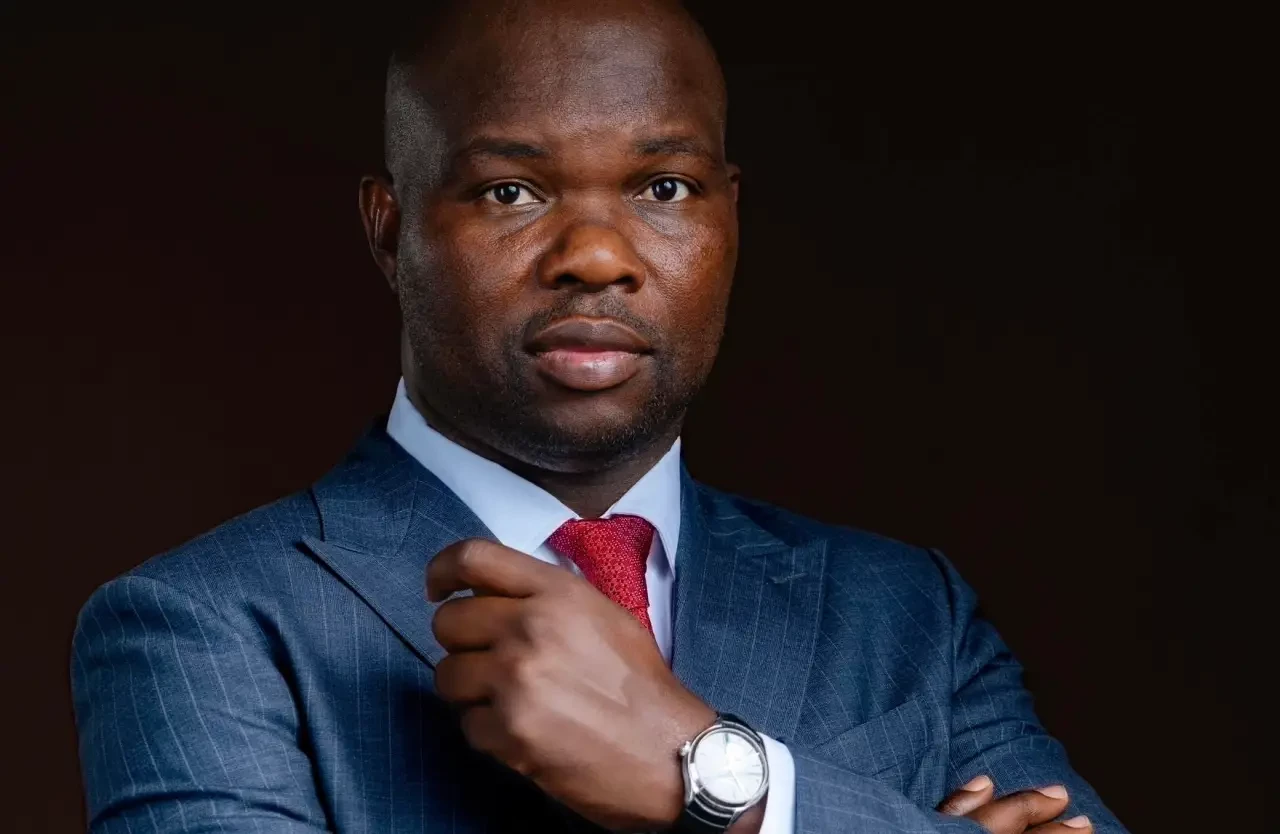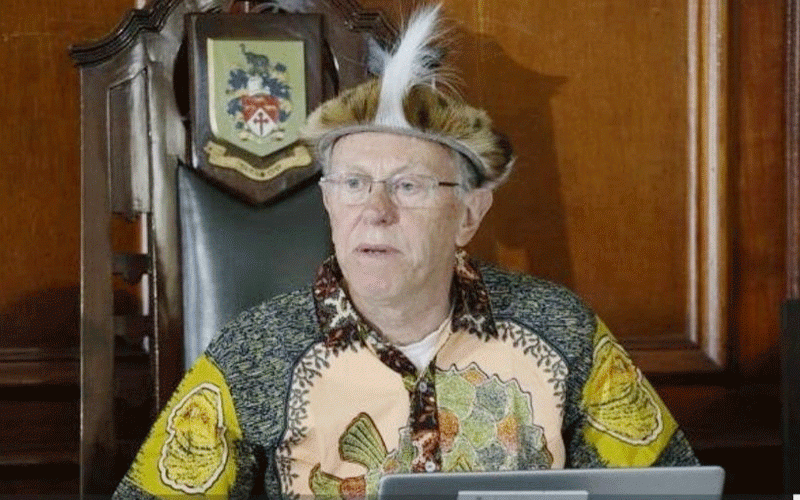
By Blessing Mandabva
The subject of paternity tests and DNAs to ascertain the biological father of a child, of late has received mixed reactions among the Zimbabwean society.
It has been approached from a western perspective rather than the crucial socio-cultural dimensions pertaining to the paternity issue. The traditional ways of resolving fertility and paternity issues were anchored in protecting families.
The Shona culture exclusively relied on socio-cultural intervention strategies to address fecundity and paternity issues. Some men embrace fatherhood irrespective of their involvement in the children’s creation and in the absence of a genetic relationship whilst others feel differently.
The expensive procedure of DNA tests could only be performed outside Zimbabwe and most citizens could not afford it.
This allowed secrets to remain especially for promiscuous men, women and for thousand abused and raped women who would rather suffer in silence than expose the real fathers of some of their children and then together with their children suffer the insults and stigma associated with rape in most African societies.
With DNA tests now easily available, more men and women with questions over the paternity of their children are taking up the tests.
According to Chengetai Banza, an elderly from Hatfield, it is the reality of this generation that we are now moving in the world of science.
- Chamisa under fire over US$120K donation
- Mavhunga puts DeMbare into Chibuku quarterfinals
- Pension funds bet on Cabora Bassa oilfields
- Councils defy govt fire tender directive
Keep Reading
“We need not to ignore science in this day and age although paternity and fertility issues were in existence in the past,” Banza said.
“Modern day paternity programmes should be handled amicably to bolster unity in the family. There is life after DNAs, hence the need to look beyond post DNA, relations, family unit and many facets.”
Banza said paternity tests should not bring shame to either parties, but must seek to bolster unity, whether the result was anticipated or not.
United Methodist pastor Reverend John Makaniko said traditional aspects such as kupindira and the gomba harina mwana were done to keep the integrity and unity of the family.
“Keeping the family unity and integrity was paramount even in a Christian scenario,” said Reverend Makaniko.
“A typical example is the story of Joseph and Mary’s pregnancy (Matthew 1:19). Joseph wanted to avoid public disgrace when Mary was pregnant, so he chose to deal with the pregnancy matter secretly.
“The open publicity of marital issues especially paternity matters these days is insensitive of the family integrity and unity. It carries emotional, social and psychological negative effects now and in future.”
Reverend Makaniko said married people should keep their marriage beds pure (Hebrews 13:4), to avoid infidelity and adultery.
Gomba harina mwana is translated as “lover of a married woman has no child. The husband is the father of every child born or conceived during a marriage.
Twenty first century women live like men when it comes to relationships in having multiple partners by committing adultery and cheating.
So, in a marriage, some husbands have more than one kid outside of that relationship and, the wife could have a child out of wedlock.
Under traditional customary law a father of a child born out of wedlock had no duty at all to maintain his child.
Where cases of infertility rear ugly face, Africans would employ the concept kupindira, a secret relationship orchestrated by family elders that allows an impotent husband’s younger brother to father children with his brother’s wife for the sake of getting her pregnant.
In Africa, marriage and procreations are two sides of the same coin, for without procreation marriage becomes a futile attempt.
Another concept of the girl child pledging to please the avenging male spirit allowed the woman pledged to bore children for the deceased although it is not biologically practical. In these cases of the above scenarios whether paternity tests are pointing to someone, it remains a nullity.
Zinatha president George Kandiero said the issue of paternity and DNA tests is a welcome development as it seeks to address misappropriation of paternity.
“Culture is dynamic; all the traditional aspects to ascertain fertility issues, and paternity worked in the past but were not accurate,” said Kandiero.
“Where there were paternity issues we used to consult traditional healers, but there were cases whereby some healers were bribed to give results in other people’s favour.
“A brother can father children with an infertile brother’s wife, but the children can be attributed to the infertile brother, children born in a relationship with a woman pledged to avenge the spirit of murdered man are attributed to the dead man being repaid.”
Kandiero said the African tradition and culture exposed the truth in due time, whether the involved parties in paternity fraud are still alive or not.
“The ancestors of the child will bring to light incurable illnesses on the part of the child which is common in African culture,” he said.
“Such children may experience genealogical disorientation, which is regarded as the feeling of being deprived of one’s heritage, religious background, culture and race. Thus, knowing one’s biological history would enable children to build their self-identities.”
Tinashe Mugabe of Global DNA Zimbabwe said society lacks knowledge about DNA tests and how this can actually help in addressing irresolute paternity disputes and probate disputes over wills.
“The closure DNA reality show explores various forms of paternity disputes from different families and decides on these disputes using DNA verification,” Mugabe said.
“We highlight the risks of pre-marital sex, extra-marital affairs as contributors to paternity disputes and family conflicts.
“We go further engaging our clients off air to help continue with their lives with a positive attitude through counselling programs.
“In the event of a negative DNA result we go on to help the mother and child to do additional DNA Tests with either the possible father or relatives.”
Mugabe said DNA closure has been well-received by both the local and the international community.
“Participants from our show have received financial support from our viewers to start entrepreneurial projects, school fees for children and groceries,” he said.
“We have received criticism and backlash from the society of issues we might have overlooked in our program that we certainly need to address.”
He said as Africans people should take pride in knowing their family history, learning about their ancestors, celebrating family traditions, embracing their culture and understanding where they came from, hence DNA testing has helped many to connect with family and their ancestral roots.
“Our Zimbabwean legal system has benefited immensely from paternity DNA tests in resolving child maintenance cases and deceased estate cases,” Mugabe said.
“Men who used to deny their children’s responsibility arguing on paternity issues can now be brought to account through DNA Tests.
“Women who have been committing paternity fraud can also be brought to account after being exposed by paternity and relationship DNA Tests.”











